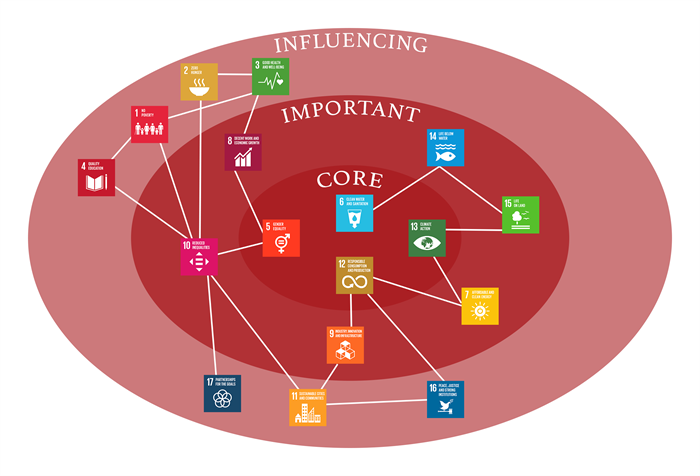Once a business has defined its relationships with the Global Goals (see the Global Goals relationship matrix above), the next step is to prioritize them in terms of the company’s potential to make a difference. This involves positioning each of the Global Goals in one of three concentric zones relating to core business purpose, strategic importance and influence on operations.

Once categorized, businesses should consider how each Global Goal relates to others across the zones to explore in which areas any contribution would have the most potential impact overall. It’s a challenging and imperfect process, but even just having these conversations helps uncover what social and environmental consequences a business is having that it doesn’t know or chooses to ignore. It’s a useful way of seeing all the dots, joining them up and making new connections.
Ultimately, the emerging picture can help inform the drafting of a business’s purpose, values and strategy statements that would be demonstrably joined up with the UN’s global strategy for a more sustainable world. The Global Goals would then provide a shared vocabulary to use in ongoing business discussions and decision-making processes.
Putting these new values into action across the business tends to be a gradual process, working out from the centre of the concentric zones in the purpose map. Firms start by implementing a sustainable measure in a part of their business, and then they expand it across the whole of their core operations, before rolling it out to stakeholders and throughout their wider value chain of activities.